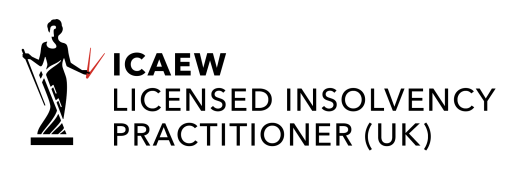Finding your company bank account frozen in the wake of a winding-up petition can feel overwhelming. Payments bounce without warning, staff begin to worry, and suppliers start calling. It is a sudden shock to day-to-day trading, but it is also a situation with clear, lawful routes forward.
We will explain what is happening behind the scenes, why the bank has acted as it has, and what you can do today to protect payroll, keep vital suppliers on side, and avoid missteps. You will see how a validation order can restore essential payments, where negotiation or defence may help, and when it is smarter to plan an orderly outcome. Anderson Brookes‘ role is to calm the process and act quickly so you can make confident decisions.

Why Banks Freeze Accounts After a Petition
When a winding-up petition is issued, the law treats later movements of company money with great care. In a compulsory winding up, any “disposition” of the company’s property after the legal start of the winding up is void unless the court allows it. This comes from section 127 of the Insolvency Act 1986 and is designed to protect creditors and the company’s estate.
Banks respond by freezing accounts once they know a petition exists. Often this is when the petition is advertised in The Gazette, or when the bank is otherwise notified. The freeze prevents payments that could later be reversed by the court as void dispositions.
Access to company funds usually requires a court permission called a validation order. Without it, banks will not allow normal transactions. GOV.UK confirms that company bank accounts are frozen after a winding-up petition is filed and that a validation order is needed to access them.
First 24 Hours: Priority Checklist
Move quickly, but keep a careful record of every step. The aim is to stabilise cash, protect people, and get ready for court or negotiation.
1) Pause non-essential payments
Stop all outgoing payments that are not critical to safety or keeping the lights on. Do not route payments through another account or a director’s personal account.
2) Speak to your bank’s specialist team
Ask what has been frozen, what limited activity (if any) remains allowed, and who the bank’s legal contact is. Note names, times, and references.
3) Protect payroll and key suppliers
List wages due, essential supplier invoices, and time-critical costs like insurance or utilities. This list will support any urgent application to permit specific payments.
4) Gather evidence for relief
Pull the latest management accounts, bank statements, aged creditors and debtors, key contracts, and a short 12-week cashflow. Save board minutes that explain why trading needs to continue in the short term.
5) Freeze new liabilities
Avoid taking new credit, signing new leases, or placing large orders. Keep trading only where you are confident you can justify it as in creditors’ interests.
6) Communicate early and carefully
Tell senior staff there is a legal process in motion and that payments are controlled. Contact your most important suppliers to maintain cooperation while you seek directions from the court.
7) Engage with HMRC and major creditors
A short, factual update can reduce escalation. Keep everything in writing. Do not make selective payments unless and until permitted.
8) Record board decisions
Hold a brief board meeting. Minute the position, the risks, and the plan, including any decision to seek a validation order. Keep minutes clear and neutral.
9) Map the legal timeline
Note the petition date, advertisement date, any hearing dates, and filing deadlines. This helps you prioritise evidence and applications.
10) Get regulated help now
Book an urgent call for triage and next steps. We provide confidential insolvency advice and can prepare the evidence you need the same day.
Quick document checklist (print and tick):
- Latest management accounts and bank statements
- Aged creditors and debtors reports
- 12-week cashflow with assumptions
- Key contracts and proof of essential orders
- Board minutes and contact notes with the bank
Call Anderson Brookes today on 0800 1804 935 or get advice by emailing us at advice@andersonbrookes.co.uk.
Validation Orders: Unfreeze Essential Payments
A validation order is a court permission that allows specific transactions to go ahead after a winding-up petition. It gives the bank confidence to release funds. Without it, most payments risk being treated as void under section 127.
You will need a validation order if:
- The bank has frozen your company account after a winding-up petition.
- You must pay wages, key suppliers, insurance or utilities to keep trading safely.
- You plan to receive or make card receipts that would otherwise be caught by the freeze.
- You want the court to approve continued trading on defined terms.
What the Court Looks For
Judges want clear evidence that the payments are in the interests of creditors as a whole. They consider:
- The company’s current financial position and viability.
- Why the proposed payments are necessary and proportionate.
- Whether creditors are better off if limited trading continues.
- The risk of prejudice to other creditors if payments proceed.
What the Order Can Cover
- One-off, named payments such as payroll or a critical supplier.
- Classes of payment, for example wages and essential utilities until a set date.
- Ongoing trading, sometimes with conditions such as weekly reporting or spending caps.


Evidence to Prepare
Have a concise bundle ready. Aim for clarity over volume.
- Management accounts for the last 6–12 months.
- Recent bank statements.
- Aged creditors and debtors, with notes on any disputes.
- A 12-week cashflow that shows the effect of the proposed payments.
- Key contracts or purchase orders that justify trading.
- Board minutes explaining why this route protects creditors.
Practical Tips
- Keep requests targeted and time-limited.
- Show that directors have paused non-essential spending.
- Explain alternatives you considered and why they were rejected.
- Provide contact details for the bank’s legal team for smooth service.
Risks of Trading Without a Validation Order
Payments made after the petition date can be challenged as void. That can create personal exposure if funds are spent and later unwound. Keep decisions conservative until the court has ruled.
How Anderson Brookes Helps
We assess the facts the same day, advise on prospects, and draft the application with supporting evidence. We liaise with your bank and with the court to secure the earliest listing. Where trading is not realistic, we help you plan the next step, including advising on the wider process of company liquidation. If you need specialist support, our team of licensed insolvency practitioners can provide help and answer common questions about insolvency.
Your Immediate Options If Trading Cannot Continue
Sometimes the numbers do not support continued trading. If that is the case, act with clarity and protect creditors as a whole.
1) Pay the petitioning creditor where viable
If funds are available and the debt is undisputed, settling the petitioning creditor can remove the immediate threat. Ask for written confirmation that the petition will be withdrawn and check whether any other creditors are likely to replace it. Do not make selective payments without advice or, if required, a court order.
2) Defend or set aside the petition if the debt is genuinely disputed
Where there is a real dispute on liability or amount, you may defend. Gather contracts, correspondence, and a note of the dispute history. Move quickly. Courts expect evidence that the dispute is genuine and not tactical. If the petition should never have been issued, an application to strike out or dismiss may be appropriate.
3) Plan an orderly outcome
If rescue is not realistic, prepare for a controlled close. Understand the difference between CVL and compulsory liquidation and how each affects investigations, costs, and creditor returns. A CVL lets directors choose an officeholder and communicate a plan. Compulsory liquidation is imposed by the court and removes control. If you are leaning toward a voluntary route, read our guide to closing a UK limited company.
4) Engage a licensed professional
Early input from a regulated specialist keeps decisions safe. If you are unsure whether the balance has tipped from rescue to closure, it may be the right time to call an insolvency practitioner. At Anderson Brookes, we can help you to prepare directors’ statements, and coordinate creditor communications.
5) Communicate with stakeholders
Be open with staff about timelines and next steps. Tell key suppliers and landlords that you are taking regulated advice and that payments must follow legal permissions. Keep HMRC informed. Written updates reduce escalation and support trust.
6) Secure records and assets
Preserve books, bank statements, management accounts, and contracts. Secure stock and equipment. Accurate records protect you and help the officeholder maximise creditor returns.
Anderson Brookes can help by assess viability, outline the legal choices, and help you implement the preferred route. If continued trading is not in creditors’ interests, we manage the glidepath to CVL, from board resolutions to creditor notices and filing. If there is a defendable dispute, we coordinate the defence and engage with the petitioning creditor. If funds allow settlement, we help you structure and document it correctly.
Sectors We Support
We support company directors in every sector, from construction firms and logistics companies to pubs, cafés, restaurants, hotels, retailers and manufacturers. Our advice is always clear, confidential and shaped by real experience in your industry. Whether you’re dealing with unpaid tax, supplier pressure or falling income, our team understands the challenges and will guide you through the best next steps.
Managing Operations While Accounts Are Frozen
Running the business during a freeze is possible with care. Keep activity limited, documented, and aligned with creditor interests.
Keep trading only where justified
If you must continue, trade on a tight, written plan. Limit customer orders to those that improve the cash position and do not disadvantage creditors. Avoid long-term commitments or new leases.
Handle receipts carefully
Do not divert takings to another bank or a personal account. Card receipts and cash can still be caught by section 127. If you expect material receipts, include this in your validation order request so funds can be banked and used lawfully.
Prioritise payroll and safety-critical costs
List the bare minimum required to keep people safe and the site compliant. Wages, insurance, and utilities are typical priorities. Keep a running schedule of amounts and due dates to support a targeted court order.
Communicate with staff
Tell managers what a petition means and that payments are controlled by law. Share a simple route for urgent spend requests and keep decisions centralised. Provide short, written updates so rumours do not fill the gap.
Work with key suppliers
Explain that you are seeking permission for specific payments. Ask for short extensions, partial shipments, or deposits held in escrow subject to court approval. Confirm anything agreed in writing.
Speak early to HMRC and large creditors
Proactive, factual updates can prevent rapid enforcement. Set expectations about timelines and court steps. Keep a log of calls and emails.
Keep records spotless
Save daily cash summaries, order approvals, and communications with the bank. Update aged creditors and debtors weekly. File every receipt. Good records support the court, the bank, and any officeholder.
Avoid section 127 risks
Until the court authorises payments, assume post-petition movements may be void. Do not make selective payments, shift funds between accounts, or repay directors’ loans.
Educate your team
Share a short glossary for clarity on petition, validation order, and liquidation using our guide to key insolvency terms. If you need a wider overview of routes in insolvency in the UK, we can walk you through options on a call.
Don’t go through the insolvency process alone. Get expert advice from licensed insolvency practitioners at Anderson Brookes. Call us now on 0800 1804 935 or email advice@andersonbrookes.co.uk.
How Anderson Brookes Helps
When a winding-up petition lands, speed and accuracy matter. We focus on three things: stabilising the position, choosing the right path, and executing cleanly.
Rapid assessment and triage
We start with a same-day call to understand cash, commitments, and legal deadlines. You get a clear plan for the next 48 hours, including whether a validation order is realistic and what evidence will persuade the court. Our practical guide for what directors need to know about winding-up petitions can help you brief colleagues quickly.
Building the evidence and application
We prepare a tight evidence bundle: recent management accounts, statements, aged lists, key contracts, and a short cashflow. We draft witness statements and proposed wording for the order. We liaise with your bank’s legal team and the court so the application is listed as early as possible.
Negotiation and defence options
If the debt is disputed, we assess the merits and coordinate a defence. If settlement is sensible, we structure it properly and seek formal confirmation of withdrawal from the petitioner. We keep records clear, which reduces later risk.
Parallel planning for orderly outcomes
If rescue is unlikely, we help you weigh routes and timing. You will understand the stages in the wider process of company liquidation and what a licensed insolvency practitioner will need from you. We prepare board minutes, staff communications, and a timeline so stakeholders stay informed.
Clear answers to common concerns
We provide straight, plain-English answers to your immediate questions about insolvency, including wages, supplier payments, and director duties. You will always know what to do next and what to avoid.
A calm, confidential point of contact
You get one lead adviser who coordinates actions and keeps you updated. We stay available for urgent decisions and court deadlines. Everything is confidential and regulated.
Talk to us now
If your account is frozen or a petition has been threatened, call us. We will assess your position today, prepare the right documents, and help you choose the safest route.
Free Confidential Advice & Quote


FAQs
Can I pay wages or HMRC without a validation order?
Not safely. Payments made after the petition date can be void without court permission. If payroll or tax must be paid, seek a focused validation order that covers those items.
How long does a validation order take?
Urgent applications can be prepared quickly once evidence is ready. Listing depends on the court diary and how complete your bundle is. Tight, targeted requests are usually heard sooner.
What evidence do I really need?
Recent management accounts, bank statements, aged creditors and debtors, a short cashflow, key contracts, and clear board minutes. Keep it concise and relevant to the payments you are asking to authorise.
Will my personal bank account be affected?
A company petition concerns the company’s property. Personal accounts are separate, but avoid mixing funds, new guarantees, or repaying directors’ loans until you have advice.
Can I switch banks to get around the freeze?
No. Moving funds or taking payments into a different account can still be caught by section 127. Explain to the bank that you are applying for permission and keep receipts controlled.
What happens if a winding-up order is made?
Control passes to the liquidator and trading normally stops unless the liquidator decides otherwise. Learn the immediate steps in a winding-up order.
Is paying the petitioning creditor the quickest fix?
Sometimes. If the debt is undisputed and you can settle in full, this may remove the immediate risk. Check for other pressing creditors who might replace the petition.
Can I keep taking customer payments while frozen?
Only with care. Card receipts or cash taken after the petition date may be within the scope of section 127. Include expected receipts in your application so funds can be banked and used lawfully.
What if the debt is disputed?
You can defend where there is a genuine dispute. Gather the evidence and act quickly. If the petition should not have been issued, the court can dismiss it.
What are the costs and risks of applying?
There are court and legal costs. The main risk is asking for permission that is too broad or poorly evidenced. Keep requests narrow, time-limited, and supported by numbers.
Will suppliers keep working with me?
Often yes, if you explain that the court controls payments and that you are applying for permission. Written, factual updates help sustain cooperation.
When should I consider closing instead of rescue?
When cashflow, forecasts, or creditor pressure make continued trading unsafe. If needed, plan an orderly route and understand the difference between CVL and compulsory liquidation before you decide.
Key Stats and Context
The latest official figures at the time of writing show that there were 2,000 registered company insolvencies in September 2025 in England and Wales. That is similar to the previous month and the same month one year prior. This included was 281 compulsory liquidations, 1,578 CVLs, 124 administrations, and 17 CVAs. On a rolling year, one in 189 companies entered insolvency, a rate of 52.9 per 10,000.
These volumes mean courts and banks are handling many urgent cases at any time. Focused requests with complete evidence tend to move faster than broad or unfocused applications.
Talk to Us Today
If your bank account is frozen, the clock is ticking. A short call can change the direction of the next few days. We will review your position, outline your safest options, and agree immediate actions.
Call us now on 0800 1804 935 for confidential, regulated support. We can prepare a targeted validation order, speak with your bank’s legal team, and steady communications with staff and suppliers. We are ready to help today.

